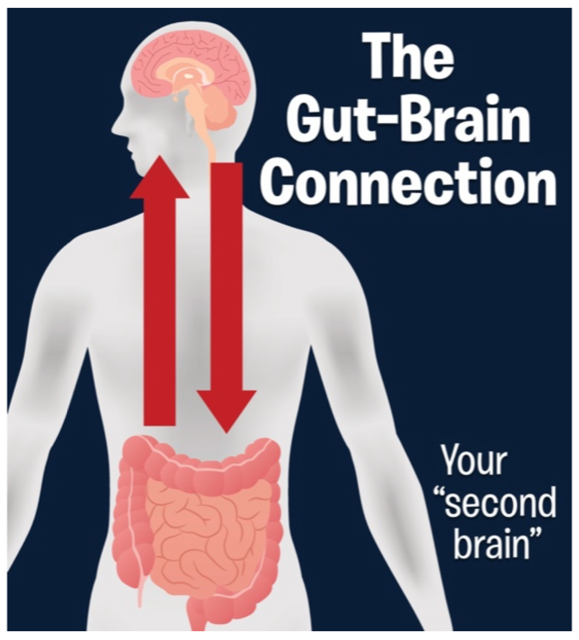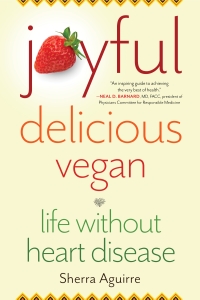Is Our “Second Brain” the Key to Preventing and Reversing Chronic Disease?
Like putting together pieces of a puzzle, research over the last several decades has led to our understanding that most chronic diseases like heart disease, diabetes, obesity, cancer, autoimmune disease, Alzheimer’s, and more have a common underlying condition–systemic inflammation. And the process behind chronic inflammation is connected to what happens in our gut, now often called our “second brain.”
We think of the brain, which along with the spinal cord makes up our central nervous system, as our most complex organ and the origin of our thoughts, emotions, and the signals that direct how our entire body functions. At the other end of the spinal cord is the gut, also part of our nervous system, and now known to communicate with the brain and even dictate certain brain behavior. It influences emotions and the development of diseases like Alzheimer’s and Parkinson’s. The gut also regulates our immune system and inflammatory response. When we eat foods that the bacteria and other microbes in our gut need to do their job, our risk for most chronic illnesses declines.

Gut Microbiome
The term ‘microbiome’ is becoming more commonly known and describes the internal universe of microorganisms, including bacteria, viruses, germs, fungi, etc., that exist in or on a specific part of the body such as in the gastrointestinal tract – our gut. These microscopic communities communicate with each other, have specific functions, and can alter their roles depending on what the body needs. In my book I talk about hearing a wellness advocate, Susana Belen, share how our trillions of cells work 24/7 to keep us healthy. It is now clear that, in addition to our human cells, a community of bacteria and other organisms outnumbering our own cells also do this work. How they all function, maintain balance, and cooperate or compete depends primarily on what and how we feed ourselves - what goes into our gut. We are part of nature just like bacteria, germs, viruses, etc., and our health improves when we feed our gut microbiome a wide variety of unprocessed, fresh, and whole plant foods.
What are the foods that are the most powerful inflammation fighters? A diet high in vegetables, fruits, whole grains, beans of all types, peas, nuts, and herbs is our main protection. It features whole plant rather than animal protein because plants are high in fiber, which the good bacteria in our gut need to do their job. This means we should minimize if not eliminate, meat, fish, and dairy, which have no fiber at all, and by comparison, are high in inflammation-promoting saturated fats. This is especially true of red meat, eggs, and dairy, along with junk food and processed foods like refined sugar, white flour, oils, and fried food. Based on what we now understand, we can see how our Standard American Diet feeds the harmful bacteria and starves the bacteria that keep normal inflammatory responses in balance. Poor sleep, lack of movement, excessive alcohol, and medications can also trigger inflammation.
Top Inflammation Fighting Foods
Here are some of the top foods to help keep your gut happy, in balance, and able to put out the fires:
-
Vegetables – Eating a wide variety of vegetables is the key to good gut health and overall health. They contain lots of soluble and insoluble fiber, vitamins, and phytonutrients essential for gut health. And don’t overlook vegetables like sweet potatoes and onions that are antioxidant, inflammation-fighting powerhouses in addition to adding lots of flavor to meals. “Nightshade” vegetables like tomatoes, peppers, and eggplant are very healthy for most, however, for some, they may aggravate joint inflammatory conditions like arthritis. Dark leafy greens like spinach, collards, kale, chard, mustards, and others are some of the healthiest foods you can eat! Loaded with antioxidants, vitamins, minerals, and omega-3 fatty acids they are powerful inflammation fighters and overall health promoters.
-
Fruits – Fruits are healthy and hydrating, and we don’t have to worry about the sugar they contain as long as we eat “the fruit, the whole fruit, and nothing but the fruit”. The generous amount of fiber they contain mitigates any blood sugar spikes as long as they are eaten and not juiced. Apples, grapes, pineapples, cherries, watermelon, and avocado among many others are rich in vitamins and inflammation-fighting antioxidants. Blueberries, strawberries, raspberries, and blackberries are healthy for the brain and contain lots of prebiotic fiber which nourishes the gut and feeds beneficial bacteria. They also help lower blood sugar, help with arthritis, weight loss, and slow down aging.
-
Legumes – Although all plants have protein, black beans, pinto beans, red beans, kidney beans, peas, lentils, chickpeas, and many other legumes are extremely high in this nutrient, and in magnesium, a powerful inflammation fighter. Beans are known to be a healthy staple of some of the healthiest cultures on the planet.
-
Whole Grains – Oats, buckwheat, millet, and brown, black, and red rice are a few examples of healthy whole grains that contain a wealth of fiber and antioxidants found in the germ and bran of the grain. They are also gluten-free, a benefit for those of us who are sensitive to that protein, even though we may not have Celiac disease. White rice, white flour, and white bread, which are processed to remove the beneficial germ and bran from the grain, are highly inflammatory.
-
Nuts and Seeds – Walnuts, almonds, sunflower, pumpkin, and chia seeds to name a few contain high amounts of healthy fat and very little saturated fat. They also have lots of protein, calcium, fiber, omega-3, zinc, and magnesium. Eat them raw and unsalted for the best benefit and avoid those processed with salt and added oils.
The new and growing scientific evidence about the key role of the gut microbiome in protecting us from chronic inflammation and disease is a breakthrough. No longer do we have to follow one set of diet and lifestyle guidelines to prevent heart disease, another for preventing diabetes, and a third for lowering our risk for cancer, Alzheimer’s, or various other chronic health conditions. Our most effective protection and opportunity to reverse these conditions is to eat a diet high in a variety of whole plant foods, including but not limited to those listed above. We also need to eliminate or restrict processed foods, animal foods, and those containing high fat, salt, and sugar. Doing so will significantly reduce our risk of developing any chronic disease and promote lifelong good health and wellness.


